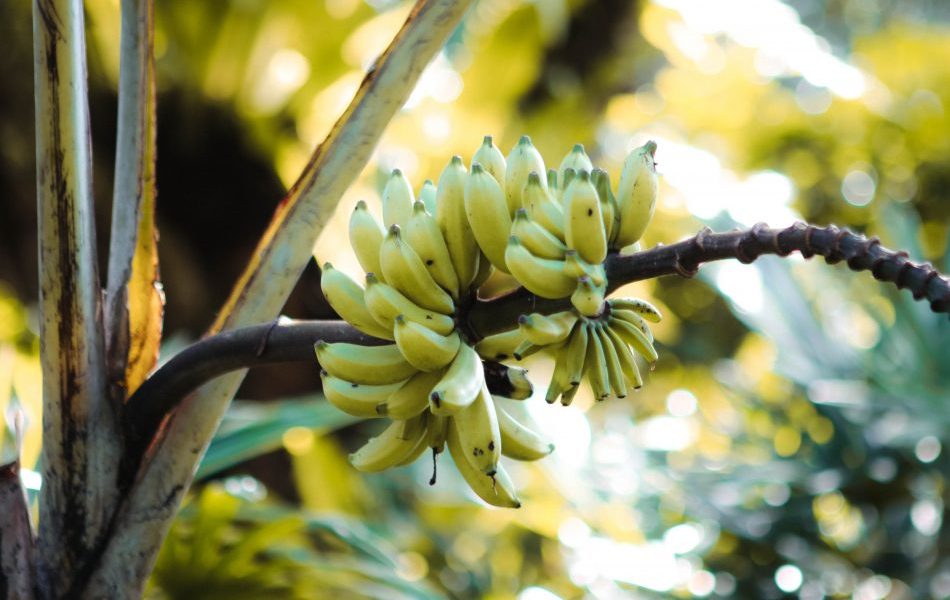As we all know, natural automatically means good. Nothing in nature has ever hurt anyone, ever.
In the first part of my series deconstructing the term ‘natural’, I talk genetically modified organisms and domestication, and ask what is really natural, anyway?
I was in Sri Lanka a couple of years ago and I went on a tour of a Spice Garden out there. I was mostly interested to see what all the kitchen spices look like in the wild – seeing vanilla plants and cardamom pods was really cool, but the tour inevitably ended in the herbal medicine shop, where you feel pressured to buy something. To be fair to the shop owners, they were really lovely and didn’t pressure us at all, but I’m British so I pressured myself. Just to be polite.
While I was choosing, I overheard one of my fellow tourists saying “You just know it’s going to be good for you, it’s natural”. And for a brief moment, my British instinct to avoid confrontation lapsed and I said, a lot louder than I intended, “sure, but arsenic is natural”. And, after a stunned silence, she seemed to take my point on board.
The list of natural things that are awful is almost endless, from diseases and parasites, to natural toxins and even the body’s own workings. And of course the list of natural things that have done good for humanity is just as long.
Saying something is natural doesn’t really tell you anything about whether it’s going to rid your body of toxins and fight cancer, or kill you within a matter of hours. But you could be forgiven for assuming that everything that is natural is good and everything that’s man-made is bad. A lot of the time the nature good, people bad rule holds. But, a lot of the time it doesn’t. Diabetes is natural, but the genetically modified bacteria that produce insulin for diabetics were created by people.
But all we hear from the media, and from advertisers, is nature good, chemicals bad. We’ve just got to cleanse ourselves of all these horrible chemical toxins and consume a natural raw diet and drink only bottled spring water and everything will be OK.
And the evidence shows we’ve all been completely bamboozled by all the information out there – in a survey of 1330 people across England, nearly 90% of people knew that smoking causes cancer, and most people knew some of the other big hitters – passive smoking, genetic predisposition, obesity, sun burn, etc. But 42% of people thought that consuming food with additives in it causes cancer, and 34% of people thought that eating GMO food would give you cancer – just to put that into context, that’s more people than said the HPV virus causes cancer – and this is a virus that has its own a national vaccination program against because of known links with cancer.
Do you know what’s not natural? Seedless grapes. You’ll often see these boasting a “No-GMO” sticker, but the product designers don’t see the hypocrisy. They don’t think about the fact that artificial selection is genetic modification. Selectively breeding grape vines to produce genetic mutants that are unable to reproduce – the most fundamental biological function – all because we’re too lazy to pick a few seeds out of our grapes before we eat them? It’s pretty selfish, that’s all I’m saying.
Genetically Modified Food
Genetic modification isn’t inherently good or bad. It’s a tool, and each new genetic modification must be tested rigorously and regulated on a case by case basis. And that’s exactly what happens. Some GMOs have been around for decades, and have had no measurable negative impact. Some have done a great deal of good – for example the Rainbow Papaya variety basically saved the Hawaiian Papaya farming industry by protecting the plants against a deadly virus. But each new GMO must be rigorously tested before being released into the wild or sold commercially.
Whether we like it or not, almost everything we eat has been genetically modified from it’s original, natural, wild form. You’d be pretty pissed off if you bit into a banana with seeds in it. But, like our grapes, we’ve selectively bread bananas to be sterile, and every banana we eat is a clone of each other, making them completely dependant on humans to reproduce. How natural is that?
The examples are plentiful – take a look at these wild relatives of well-known fruits and vegetables.
Want to Know More?
- NHS – What are superfoods?
- Learn Genetics – Evolution of Corn
- UK Health and Safety Executive – GMOs and the Law
- Federation of American Scientists – U.S. Regulation of Genetically Modified Crops
- ISAAA – GM Approval Database
- Gonsalves, C., Lee, D. R., & Gonsalves, D. (2004). Transgenic Virus-Resistant Papaya: The Hawaiian ‘Rainbow’ was Rapidly Adopted by Farmers and is of Major Importance in Hawaii Today. APSnet Features.
- Shahab, L., McGowan, J. A., Waller, J., & Smith, S. G. (2018). Prevalence of beliefs about actual and mythical causes of cancer and their association with socio-demographic and health-related characteristics: Findings from a cross-sectional survey in England. European Journal of Cancer.
Featured image by Max Ducourneau on Unsplash




